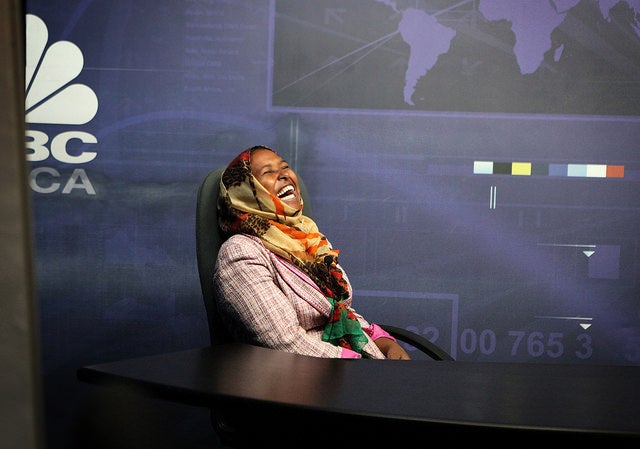
(Photo Credit: Rachael Strecher)
The Aspen Institute New Voices Fellowship, which recently announced their 2016 class, aims to train and support a new cadre of experts from developing countries to champion solutions for global development work. Read below to learn more about the role the Fellows play in broadening the global development conversation.
To some, the Oscar Boycott may be a petty Hollywood feud, with the complicated notion of diversity at its heart. But who tells our stories — whether on the movie screen or in the newspaper opinion pages — matters. This is particularly true when it comes to global development, which is of crucial importance to the world’s poorest and most marginalized people. To broaden this conversation, we have sought to bring new perspectives to the media’s coverage of health and development issues with the Aspen Institute New Voices Fellowship.
As we announce our fourth year of New Voices Fellows, I can’t help but think back to when we started our program in 2013. We used to say we were building the car while driving it. This year, the car is built, we just have to make it run smoothly and perhaps add a few seats as we expand our class from 11 Fellows in our first year to 21 in 2016.
Our Fellows are brilliant development experts who also come from developing countries. We have a mental health activist from Kenya, a Yemeni woman working to tell the stories of Syrian refugees, and the chief investigator for the Ebola vaccine in Liberia. You’ll want to hear what they have to say, and that’s what this year is designed to make possible.
We start in Johannesburg, South Africa, where Fellows will receive comprehensive training on writing opinion articles, and how to give a great interview on camera. Later, we’ll bring the Fellows to Aspen, Colorado, where some of them will be speakers at the Aspen Ideas Festival event Spotlight Health. They’ll provide the kind of global perspective that’s sometimes hard to find in a beautiful small town up in the mountains of Colorado. We’ll also work with “The Moth Radio Hour” to hone the Fellows’ storytelling skills, which has helped to bring their stories to hundreds of thousands of radio and podcast listeners.
By changing who tells the story of development, we believe the New Voices Fellows are changing the development process itself. Is that overstating things a bit? We don’t think so. When the narratives — in conferences, opinion pieces, and news segments — are shaped by largely Western voices, we miss out on potential solutions that come from peoples’ experiences — not just as doctors and entrepreneurs, but as mothers, youth, and citizens of those countries.
New Voices Fellows from previous years have shown that there’s a real hunger on the part of media outlets for stories rooted in their experiences. Fellows have written about the epidemic of trauma cases in Africa and the role of soil health in food security in outlets like the New York Times and CNN, and spoken on efforts to build peace through entrepreneurship in Somalia from the TED stage.
But we hope it doesn’t end there. The people who read the articles and view the TED talks sometimes have the power to make real policy change. It takes time, but the power of communicating new ideas can be such that girls receive the tools they need to get an education, or world leaders consider the economic impact of emphasizing gay rights.
Keep your eye out for this year’s crop of inspiring leaders, and take advantage of the stories and wisdom they’ll bring to global development.
Rachael Strecher is program manager of the New Voices Fellowship at the Aspen Institute.

